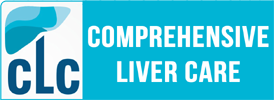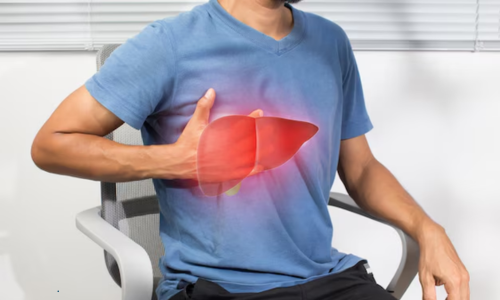Why Recognizing Liver Disease Early Matters
The early signs of liver disease often appear subtle, yet they hold critical clues about your body’s health. The liver is a vital organ responsible for detoxifying the blood, aiding digestion, and storing essential nutrients. When it’s under stress or damaged, the symptoms can be easily overlooked — until the condition becomes severe.
Understanding these early warning signs can help you take timely action, seek medical attention, and prevent long-term complications.
Why the Liver Is So Important to Your Health
The liver is the body’s silent workhorse — performing over 500 essential functions.
It filters toxins from the bloodstream, metabolizes nutrients, produces bile for digestion, and helps regulate hormones and cholesterol. When liver cells are damaged due to infection, fatty buildup, alcohol, or medications, these processes slow down, causing toxins to accumulate in the body.
Without early detection, this can progress to chronic liver disease, fibrosis, or cirrhosis.
Common Early Warning Signs of Liver Disease
1. Persistent Fatigue and Weakness
One of the earliest and most common signs of liver trouble is ongoing fatigue. The liver plays a key role in converting food into energy. When it becomes inflamed or damaged, the body produces less glucose and stores fewer nutrients — leading to constant tiredness and weakness.
2. Yellowing of Skin and Eyes (Jaundice)
Jaundice occurs when bilirubin, a yellow pigment produced from old red blood cells, builds up in the bloodstream. A healthy liver filters bilirubin effectively. When it fails to do so, the skin and eyes turn yellow — a clear indicator that your liver needs immediate attention.
3. Abdominal Pain or Swelling
Discomfort or fullness in the upper right side of the abdomen is often linked to liver inflammation. In advanced stages, fluid may accumulate in the abdomen (ascites), causing visible swelling and pressure.
4. Dark Urine and Pale Stools
Changes in urine and stool color are strong indicators of liver distress.
Dark urine may suggest high bilirubin levels, while pale or clay-colored stools occur when bile flow is blocked — both are warning signs that the liver isn’t processing waste properly.
5. Loss of Appetite or Nausea
A damaged liver can affect digestion, leading to reduced appetite, bloating, or nausea after meals. In many cases, people lose weight unintentionally as their body struggles to metabolize fats and proteins.
6. Itchy Skin and Easy Bruising
When bile salts accumulate beneath the skin, it may cause intense itching. Additionally, the liver produces proteins that help with blood clotting — so when it’s impaired, you may notice bruising or bleeding more easily than usual.
What Causes Liver Disease?
Liver disease can stem from a range of underlying issues, and identifying the cause is crucial for treatment.
-
Alcohol consumption: Long-term drinking can cause inflammation and scarring (alcoholic liver disease).
-
Non-alcoholic fatty liver disease (NAFLD): Often linked to obesity, diabetes, or poor diet.
-
Viral infections: Hepatitis A, B, and C can lead to chronic inflammation.
-
Medications and toxins: Certain drugs and herbal supplements can damage liver tissue.
-
Autoimmune disorders: The immune system may mistakenly attack liver cells.
Knowing the cause allows hepatologists to tailor treatment — whether through medication, lifestyle changes, or further testing.
When Should You See a Hepatologist?
If you experience persistent fatigue, unexplained nausea, or yellowing of your eyes, it’s time to consult a hepatologist.
Early intervention can prevent progression to cirrhosis or liver failure. A hepatologist specializes in diagnosing and managing liver-related disorders, offering advanced tests such as liver function analysis, ultrasound, or biopsy.
For patients in Kerala, consulting a hepatologist in Kochi like Dr. Harikumar R. Nair can provide personalized evaluation and treatment based on your symptoms and medical history.
How Hepatologists Diagnose Liver Problems
Diagnosis begins with a detailed medical history, physical examination, and targeted testing.
-
Blood tests: To evaluate enzymes, bilirubin, and protein levels.
-
Ultrasound or MRI: To detect inflammation, fat buildup, or tumors.
-
Liver biopsy: A small tissue sample may be taken to confirm fibrosis or cirrhosis.
These diagnostic tools help determine the stage of liver disease and guide appropriate treatment options.
Protecting Your Liver — Prevention Tips from Hepatology Experts
Healthy lifestyle habits are key to preventing liver disease and supporting recovery.
1. Maintain a Balanced Diet
Focus on fruits, vegetables, lean proteins, and whole grains. Limit processed foods, saturated fats, and sugar.
2. Exercise Regularly
Physical activity improves metabolism and reduces fat buildup in the liver.
3. Avoid Alcohol and Unnecessary Medications
Alcohol is one of the leading causes of liver damage. Use medications only under medical supervision.
4. Get Vaccinated for Hepatitis
Vaccines for Hepatitis A and B provide essential protection.
5. Stay Hydrated and Manage Weight
Proper hydration supports liver detoxification. Maintaining a healthy weight reduces the risk of non-alcoholic fatty liver disease.
6. Go for Routine Checkups
If you have diabetes, high cholesterol, or obesity, schedule regular liver function tests to detect early changes.
Complications of Ignoring Early Signs
Ignoring the early warning signs of liver disease can lead to serious complications such as:
-
Liver fibrosis and cirrhosis (scarring of liver tissue)
-
Portal hypertension (increased pressure in liver blood vessels)
-
Liver failure
-
Increased risk of liver cancer
Timely diagnosis and lifestyle modifications can significantly reduce these risks.
Final Thoughts
Your liver quietly supports nearly every system in your body — until it struggles. Recognizing the early warning signs of liver disease allows you to act before the damage becomes irreversible.
If you notice unusual fatigue, yellowing skin, or persistent digestive issues, consult a hepatologist for professional evaluation. With early care, most liver problems can be managed effectively, helping you lead a healthy, active life.
For expert liver care and diagnosis, visit Dr. Harikumar R. Nair, an experienced Hepatologist in Kochi, Kerala, specializing in liver diseases, hepatology, and transplant medicine.
FAQs (For Featured Snippet & AEO Optimization)
Q1: What are the earliest symptoms of liver disease?
The most common early symptoms include fatigue, yellowing of the eyes or skin (jaundice), dark urine, and abdominal discomfort.
Q2: Can liver disease be cured?
Some liver conditions, like fatty liver or mild hepatitis, can be reversed with early treatment and lifestyle changes. However, advanced stages like cirrhosis require long-term management.
Q3: How do doctors test for liver disease?
Doctors use blood tests, imaging (like ultrasound or MRI), and sometimes a liver biopsy to evaluate the condition and severity of liver damage.
Q4: What foods help improve liver health?
Foods rich in antioxidants — such as leafy greens, garlic, turmeric, and coffee in moderation — can support liver function.
Q5: When should I visit a hepatologist?
If you experience persistent fatigue, nausea, or any yellowing of the eyes or skin, it’s best to consult a hepatologist promptly for evaluation.

